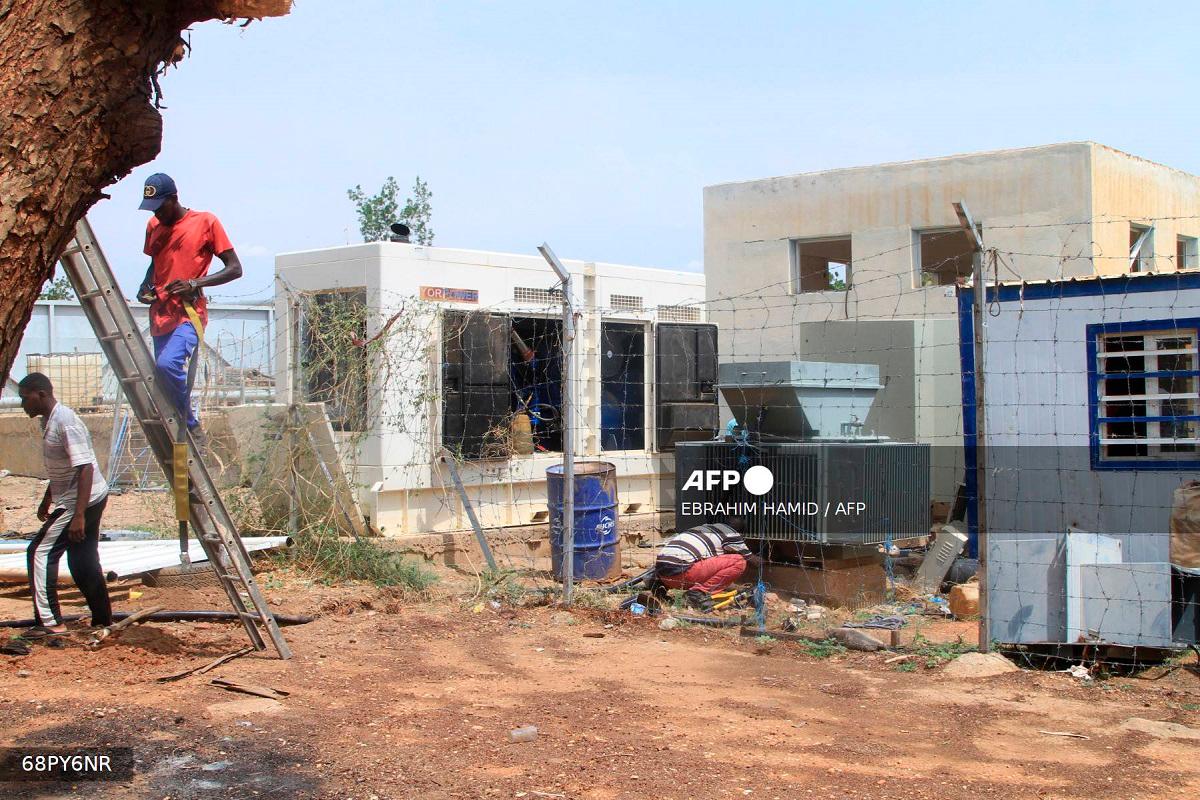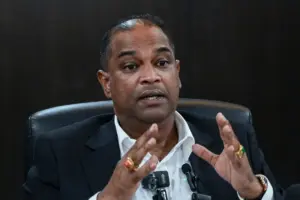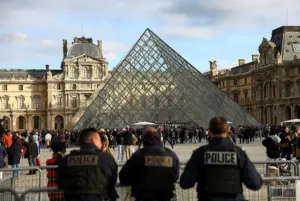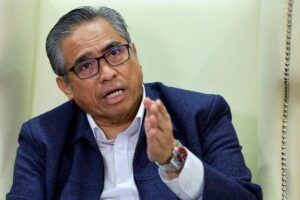KHARTOUM: Builders are clearing rubble from bullet-riddled houses and repairing broken power lines across Sudan’s capital in the first major reconstruction effort since civil war erupted over two years ago.
Fighting between Sudan’s army and the paramilitary Rapid Support Forces that broke out in April 2023 has left the capital battered and hollowed out.
Government agencies and youth-led volunteer groups have finally begun repairing hospitals, schools and water and power networks.
“We are working to restore the state’s infrastructure,“ volunteer Mostafa Awad said.
Khartoum’s skyline now presents a jagged silhouette of collapsed buildings where nine million people once thrived in a bustling metropolis.
Electrical poles lean precariously or lie snapped on the ground while stripped and burned-out cars sit abandoned with tires melted into asphalt.
Entire residential blocks stand with exterior walls ripped away during intense fighting according to AFP correspondents.
Danger persists within soot-stained buildings as authorities slowly work to clear tens of thousands of unexploded bombs left behind by combatants.
The United Nations warns Khartoum remains “heavily contaminated by unexploded ordnance” with landmines discovered across the capital this month.
Sudan’s conflict has killed tens of thousands while displacing 13 million people and creating the world’s worst hunger and displacement crisis.
The army pushed the RSF out of Khartoum in March after the capital served as a battlefield that displaced four million residents.
Paramilitary fighters systematically looted everything from medical equipment and water pumps to copper wiring before retreating.
“Normally in a war zone, you see massive destruction… but you hardly ever see what happened in Khartoum,“ the UN’s resident and humanitarian coordinator Luca Renda said.
“All the cables have been taken away from homes, all the pipes have been destroyed,“ he told AFP, describing systematic looting of both small and large-scale items.
Power and water systems remain among the city’s greatest challenges according to infrastructure officials.
“Some power stations were completely destroyed,“ east Khartoum’s electricity department head Mohamed al-Bashir said, noting the RSF had “specifically targeted transformer oil and copper cables”.
Vast areas remain without electricity while unreliable water supplies contributed to a cholera outbreak that reached 1,500 new cases daily in June.
Prime Minister Kamil Idris pledged a wide-scale recovery effort during his first visit to Khartoum last month.
“Khartoum will return as a proud national capital,“ Idris said.
The government has begun planning its return from Port Sudan even as war continues elsewhere in the country.
Authorities announced central Khartoum would be evacuated and redesigned after suffering the fiercest battles in the devastated business and government district.
The UN estimates rehabilitation of essential facilities will cost around $350 million while full rebuilding “will take years and several billion dollars” according to Renda.
Hundreds of volunteers have begun reconstruction work despite significant obstacles including material shortages.
“We faced challenges such as the lack of raw materials, especially infrastructure tools, sanitation supplies and iron,“ construction worker Mohamed El Ser said.
“Still, the market is relatively starting to recover,“ he told AFP.
Workers across the city are refitting pipes into damaged homes while others lift concrete slabs and mangled metal into wheelbarrows.
The UN expects up to two million people to return to Khartoum by year’s end with tens of thousands already rebuilding their lives.
“Honestly, there is an improvement in living conditions,“ recently returned resident Ali Mohamed said.
“There is more stability now, and real services are beginning to come back, like water, electricity and even basic medical care.” – AFP






